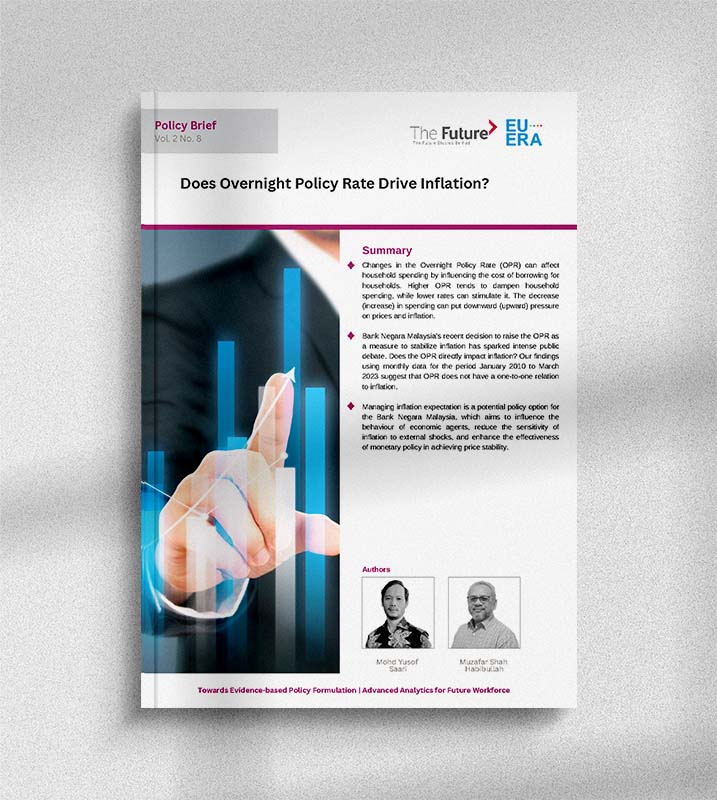Summary
Changes in the Overnight Policy Rate (OPR) can affect household spending by influencing the cost of borrowing for households. Higher OPR tends to dampen household spending, while lower rates can stimulate it. The decrease (increase) in spending can put downward (upward) pressure on prices and inflation.
Bank Negara Malaysia’s recent decision to raise the OPR as a measure to stabilize inflation has sparked intense public debate. Does the OPR directly impact inflation? Our findings using monthly data for the period January 2010 to March 2023 suggest that OPR does not have a one-to-one relation to inflation.
Managing inflation expectation is a potential policy option for the Bank Negara Malaysia, which aims to influence the behavior of economic agents, reduce the sensitivity of inflation to external shocks, and enhance the effectiveness of monetary policy in achieving price stability.





